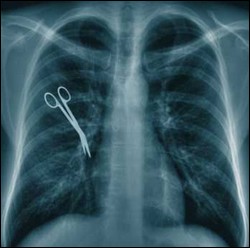 After a cleft lip/cleft palate surgery, it is important to listen to your doctor’s guidelines and follow up based on the doctor’s instructions. Just like you regularly would check in with your birth defects attorneys, it is very important to check up with the medical team at the appropriate intervals. Your child is likely going to be in some pain after the surgery, and he or she needs to be given the appropriate time to heal before follow-up work is done. As always, follow your doctor’s instructions for the safest and most optimal recovery.
After a cleft lip/cleft palate surgery, it is important to listen to your doctor’s guidelines and follow up based on the doctor’s instructions. Just like you regularly would check in with your birth defects attorneys, it is very important to check up with the medical team at the appropriate intervals. Your child is likely going to be in some pain after the surgery, and he or she needs to be given the appropriate time to heal before follow-up work is done. As always, follow your doctor’s instructions for the safest and most optimal recovery.
Follow Up Visits
Once your child is discharged, there are typically two follow up dates that are required. The first visit should be at seven to ten days after surgery. The second appointment should usually be at about three weeks after the surgery. Finally, if there happens to be a wound breakdown, it is usually advisable to wait at least six months after surgery to attempt to close it. This is because blood supply needs to be reestablished to the tissues.
Birth Defects Attorneys in New Jersey and Philadelphia
Many parents who have children born with a cleft lip or cleft palate are often overwhelmed and, in some instances, confused about their legal rights. They are especially confused about whether or not the services of birth defects attorneys would be needed. In some cases, there have been improper actions that may have led to your child’s birth defect and contacting birth defects attorneys is beneficial to your family’s physical and financial health. For example, the FDA has recently announced that Topamax (Topiramate), taken during pregnancy or during child-bearing years, has been linked to an increase in the development of cleft lips and cleft palates. We are able to assist parents dealing with these issues. Contact the Mininno Law Office for a free case evaluation or call for a free consultation at (856) 833-0600 in New Jersey, or (215) 567-2380 in Philadelphia.
 It is suggested that extreme time pressures may be the number one cause of wrong-site surgeries. Doctors are extremely busy people, and their schedules are not getting any less full. However, this does not mean that innocent people should be injured. Some surgeons have suggested a protocol to prevent wrong-site injury by requiring a pre-operative verification of important details, marking the surgical site, and a mandatory timeout to confirm everything before the procedure begins. When steps like these are not followed, preventable injuries occur. Sometimes, those injuries are fatal.
It is suggested that extreme time pressures may be the number one cause of wrong-site surgeries. Doctors are extremely busy people, and their schedules are not getting any less full. However, this does not mean that innocent people should be injured. Some surgeons have suggested a protocol to prevent wrong-site injury by requiring a pre-operative verification of important details, marking the surgical site, and a mandatory timeout to confirm everything before the procedure begins. When steps like these are not followed, preventable injuries occur. Sometimes, those injuries are fatal. Following the initial heart surgery, Pinarkyil began experiencing some cardiac abnormalities in addition to displaying some signs of shock. Doctors treated him with additional fluids and medications but there was no significant improvement in his condition. Over the following two days, Pinarkyil’s cardiac output was dramatically reduced. Pinarkyil’s initial surgery was on June 1st, 2007, by June 4th he was dead. The death occurred because doctors failed to recognize that the shock and dramatic health issues seen after surgery could be directly linked to the man’s heart. We believe that if the proper devices would have been used, such as an intra-aortic balloon pump, Pinarkyil would not have had organ failure. As Mr. Pinarkyil lost his life, it is hard not to feel the most sympathy for his widow and three young children. Pinarkyil’s medical malpractice attorney stated, “our hope is that this compensation will help offset the financial impact of his loss to his widow and daughters, as well as the son who will grow up without ever having met his father.”
Following the initial heart surgery, Pinarkyil began experiencing some cardiac abnormalities in addition to displaying some signs of shock. Doctors treated him with additional fluids and medications but there was no significant improvement in his condition. Over the following two days, Pinarkyil’s cardiac output was dramatically reduced. Pinarkyil’s initial surgery was on June 1st, 2007, by June 4th he was dead. The death occurred because doctors failed to recognize that the shock and dramatic health issues seen after surgery could be directly linked to the man’s heart. We believe that if the proper devices would have been used, such as an intra-aortic balloon pump, Pinarkyil would not have had organ failure. As Mr. Pinarkyil lost his life, it is hard not to feel the most sympathy for his widow and three young children. Pinarkyil’s medical malpractice attorney stated, “our hope is that this compensation will help offset the financial impact of his loss to his widow and daughters, as well as the son who will grow up without ever having met his father.” The proposed legislation would deem doctors treating medicare patients “agents of the state,” awarding the same damage capping immunity that all Florida state employees get. But a cap that only affects the recoveries of Medicare insured patients is unconstitutional, as it makes them lesser persons, unworthy of the same compensation as those that can afford healthcare. Medical malpractice attorneys have long been against limiting liability, as it allows doctors to only answer for a portion of their negligence. And if a cap on medicare insured patients is approved, who is to say what kind of an effect that will have on the care they receive throughout the state. It certainly opens up a potential for medicare patients to begin receiving subpar care due to the limited liablity doctors will face.
The proposed legislation would deem doctors treating medicare patients “agents of the state,” awarding the same damage capping immunity that all Florida state employees get. But a cap that only affects the recoveries of Medicare insured patients is unconstitutional, as it makes them lesser persons, unworthy of the same compensation as those that can afford healthcare. Medical malpractice attorneys have long been against limiting liability, as it allows doctors to only answer for a portion of their negligence. And if a cap on medicare insured patients is approved, who is to say what kind of an effect that will have on the care they receive throughout the state. It certainly opens up a potential for medicare patients to begin receiving subpar care due to the limited liablity doctors will face. A medical malpractice attorney is going to spend a lot of time and money filing a claim against a medical provider that has wronged his or her client. Sometimes, as much as $100,000 dollars in out-of-pocket expenses, and as long as 5 or 6 years.
A medical malpractice attorney is going to spend a lot of time and money filing a claim against a medical provider that has wronged his or her client. Sometimes, as much as $100,000 dollars in out-of-pocket expenses, and as long as 5 or 6 years. We’ve all heard the phrase “no news is good news.” But when it comes to medical test results, this couldn’t be further from the truth.
We’ve all heard the phrase “no news is good news.” But when it comes to medical test results, this couldn’t be further from the truth. The board in charge of reviewing
The board in charge of reviewing